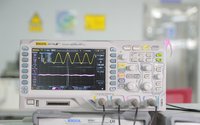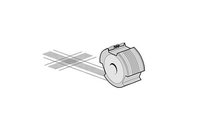The purpose of oblique impact testing for electronic components
Date:2024-06-19 10:34:26 Views:2467
With the continuous progress of technology, electronic products are playing an increasingly important role in our daily lives. And the quality and reliability of these indispensable components in electronic products have clearly become one of the focuses of concern for manufacturers and consumers. In the production process of electronic components, oblique impact testing, as an important quality control procedure, is gradually becoming a key link in ensuring product quality.
Slope impact testing is a method used to test the durability and reliability of electronic components. It evaluates whether the components can work properly in harsh environments by simulating the impacts and vibrations they may encounter during use. This test typically involves fixing the components on a specific angle of slope, and then applying impact or vibration forces to simulate the stress situation under actual working conditions. Through this approach, manufacturers can evaluate the reliability of components during use, thereby ensuring product quality and performance.
_20240619103153_258.jpg)
In modern electronic products, the quality and reliability of components directly affect the stability and lifespan of the product. If components are easily affected by external shocks or vibrations during use and fail, it will have a serious impact on the reliability and user experience of the product. Therefore, as an important quality control measure, oblique impact testing is crucial for ensuring the stability and reliability of components.
In addition to directly ensuring product quality, oblique impact testing can also help manufacturers save costs and time. By conducting comprehensive oblique impact testing on components during the production process, manufacturers can identify potential quality issues before product launch, avoiding product recalls and maintenance costs caused by quality issues. Meanwhile, early detection of quality issues with electronic components can also reduce product development cycles and improve production efficiency.
Overall, as a key quality control procedure, oblique impact testing can not only ensure the quality and reliability of electronic components, but also help manufacturers save costs and time. With the continuous development of the electronic product industry, it is believed that oblique impact testing will play an increasingly important role in the future and become an indispensable part of ensuring product quality.




 Weixin Service
Weixin Service

 DouYin
DouYin
 KuaiShou
KuaiShou





















